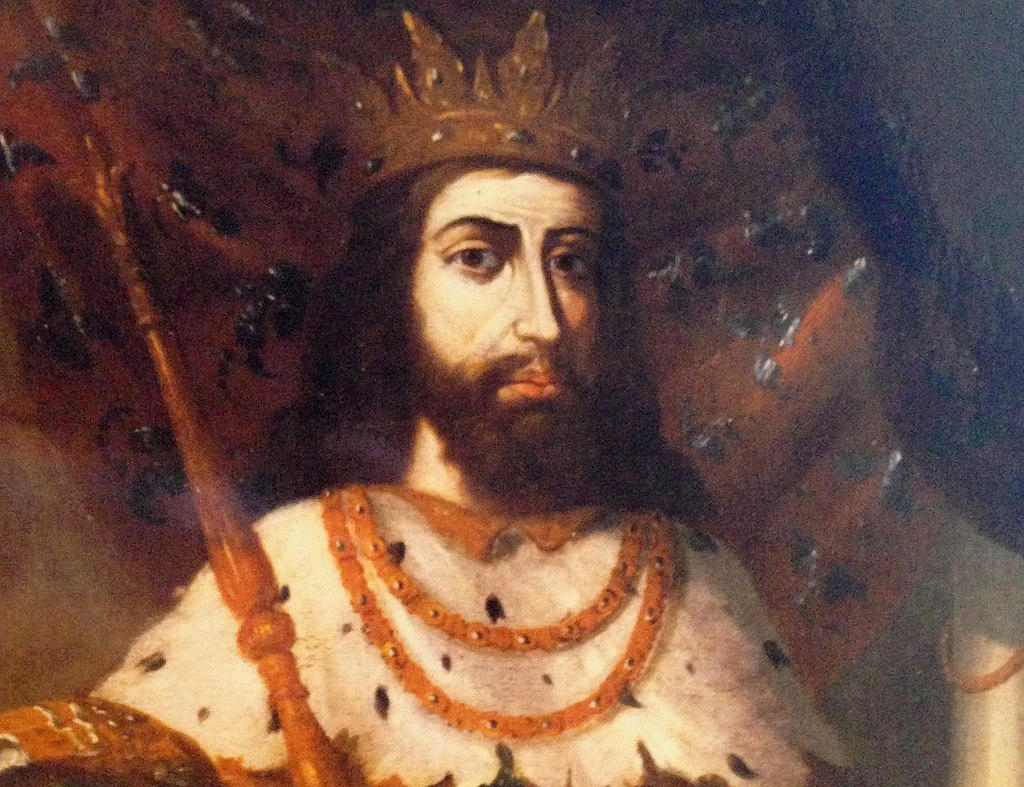King Denis of Portugal (1279-1325):
Known as the "Rei Lavrador" or the Farmer King, Denis's reign was characterized by agricultural reforms, economic development, and intellectual pursuits. He encouraged the cultivation of new crops, established forest reserves, and supported education, founding the first Portuguese university in Lisbon.Saint Elizabeth of Aragon, Queen of Portugal (1282-1325):
Elizabeth, also known as Saint Elizabeth, was the wife of King Denis. Renowned for her piety and charitable works, she dedicated herself to religious activities and aiding the poor and sick. Queen Elizabeth's legacy as a compassionate and devout queen earned her sainthood.King Afonso IV of Portugal (1325-1357):
Afonso IV faced numerous challenges during his reign, including political conflicts, the Black Death, and territorial disputes. Despite these hardships, he managed to maintain stability and consolidate royal authority. His reign also saw the beginning of overseas exploration and the codification of maritime laws.Beatrice of Castile, Queen of Portugal (1325-1357):
Queen Beatrice II, born on March 8, 1293, was an infanta of Castile, the daughter of Sancho IV and María de Molina. Her marriage to Afonso IV, the King of Portugal, in 1325 elevated her to the position of Queen consort. Beatrice reigned as Queen of Portugal from 1325 until the death of her husband on May 28, 1357. Throughout her tenure, she played a significant role in the governance of Portugal, leaving a lasting impact on the country's political and social landscape.King Peter I of Portugal (1357-1367):
King Peter I, known as "Peter the Just," was a significant figure in 14th-century Portugal. Despite his short reign, he faced internal and external challenges with determination. Peter I's involvement in the murder of Inês de Castro and his successful defense of Portuguese independence during the War of the Two Peters shaped his legacy. His efforts to centralize royal power and introduce administrative reforms left a lasting impact. Though controversial, Peter I's contributions to Portuguese history cannot be overlooked.King Fernando I of Portugal (1367-1383):
King Fernando, also known as the Handsome, ascended to the throne at a young age and faced internal and external challenges. His reign was marked by territorial conflicts, including the War of the Two Peters, and the struggle to maintain Portuguese independence during the aforementioned crisis. His premature death without a male heir intensified the succession dispute.Lisbon.vip Recommends
Leonor Teles, Queen of Portugal (1372-1383):
Queen Leonor Teles was a significant figure in the history of Portugal during the 14th century. As the wife of King Fernando I, she wielded considerable influence and played a pivotal role in the political landscape of the time. However, her reign was marked by controversy and power struggles. Queen Leonor Teles faced opposition from noble factions and experienced conflicts with her stepson, Infante João, who sought to challenge her authority. Her involvement in political intrigue and alliances further fueled tensions within the kingdom.King John I of Portugal (1385-1433):
King João I, also known as John I, reigned as the King of Portugal from 1385 to 1433. His reign marked a crucial period in Portuguese history as he successfully led the country through the 1383-1385 Crisis, securing Portugal's independence from Castile. João I played a pivotal role in the Battle of Aljubarrota, a significant military victory that solidified his position as king and ensured the stability and sovereignty of Portugal. His reign saw the beginning of the Avis dynasty and set the stage for the Age of Discoveries, establishing Portugal as a major maritime power.Philippa of Lancaster, Queen of Portugal (1387-1415):
Philippa of Lancaster, born on 31 March 1360, was a member of the esteemed royal family of England. Her marriage to King John I of Portugal in 1387 solidified the Treaty of Windsor and marked the beginning of her influential role as Queen of Portugal. Through their union, Philippa and John I had several children who would go on to be recognized as the "Illustrious Generation" in Portugal, leaving a lasting impact on the country's history. Queen Philippa's marriage and her contributions to the Portuguese royal lineage further strengthened the ties between England and Portugal during her reign from 1387 until 1415.The kings and queens of Portugal in the 14th century navigated through a complex web of political, social, and cultural dynamics. Their leadership, resilience, and pursuit of progress propelled Portugal forward, shaping its history and identity. From agricultural reforms to overseas exploration and royal succession disputes, these rulers left an enduring legacy that reverberates in the annals of Portuguese history.



